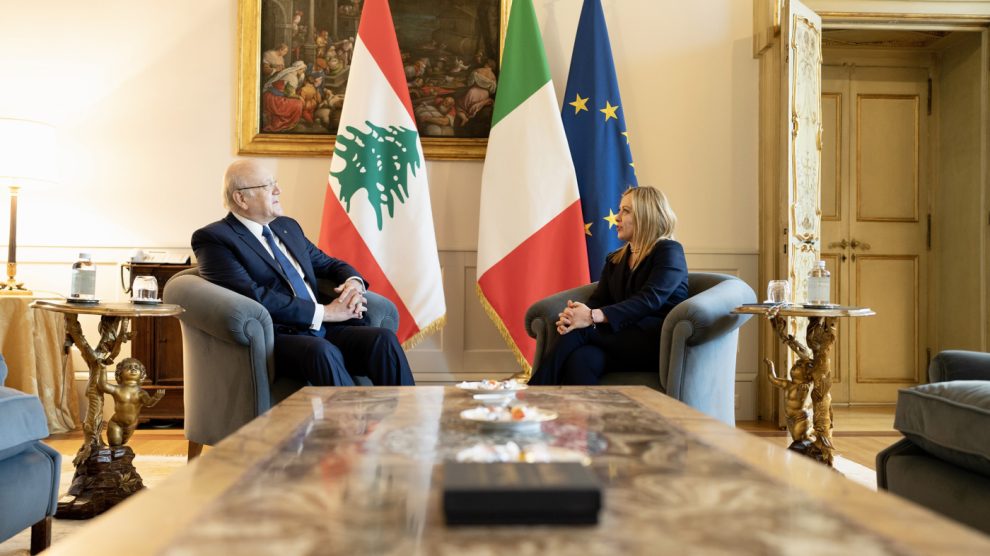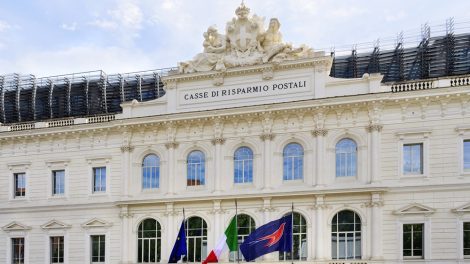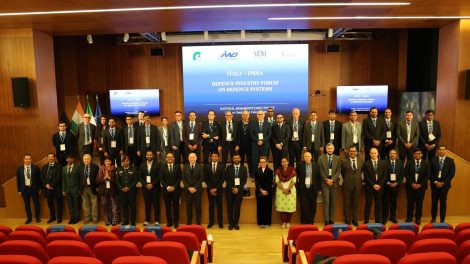The Meloni-Mikati meeting. On Thursday, Italian Prime Minister Giorgia Meloni had “a very cordial meeting” with her Lebanese counterpart, Najib Mikati, in Rome, reads an official note.
- The two discussed topics on the bilateral agenda, especially “cooperation in the energy and development cooperation sectors, as well as migration policies in the Mediterranean.”
- Here’s how Italy is moving in the area with its foreign policy, energy and investments-centred approach.
- They also touched upon the latest developments in the Middle East, most notably Syria and the issue of Syrian refugees in Lebanon.
Focus on security. The issue was the centrepiece of their talks. PM Meloni “reaffirmed Italy’s willingness to continue to contribute to the security and stability of Lebanon at this delicate juncture in the country’s history,” as it does by contributing to the United Nations UNIFIL Mission – for which, alongside Rome’s training of the Lebanese Armed Forces, PM Mikati “expressed great appreciation.”
- Meanwhile, at the Beirut Military Hospital, delegates from the Italian and Lebanese Defence Ministers signed an agreement entailing Italy’s support for the Lebanese Armed Forces’ hospital facilities, which will cover up to 15% of the country’s population with sanitary assistance.
- As noted by the Italian Defence, the agreement is part of the MIBIL Bilateral Mission “and confirms the path of cooperation between the two countries that has been underway for years.”
The Vatican side. Pope Francis also welcomed the Lebanese PM, who reported that the pontiff had “reiterated his confidence in Lebanon’s message of cultural and religious pluralism” and appealed to all the political leaders of the Lebanese nation – which has been long suspended in a political and economic crisis – to exercise solidarity.
- PM Mikati added he had delivered a document to the pope “outlining the situation in Lebanon and the possible solutions to which the Vatican could contribute through contacts with the international community, in particular for the urgent development of the presidential election.”





